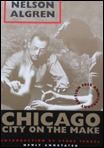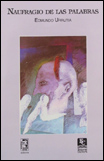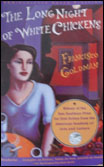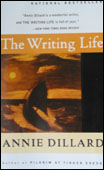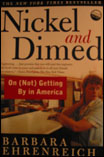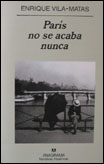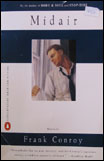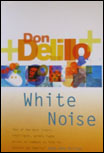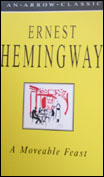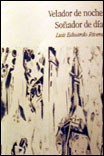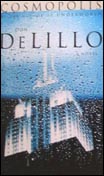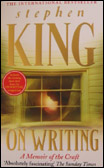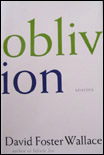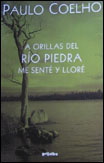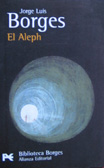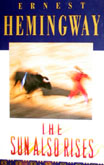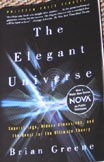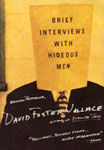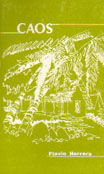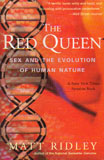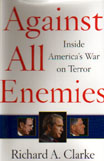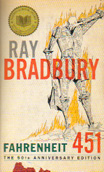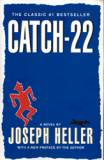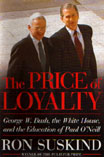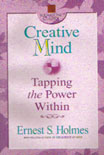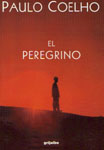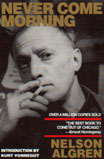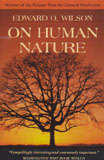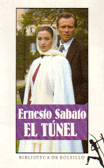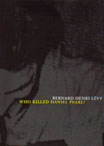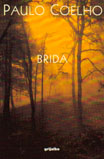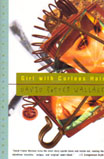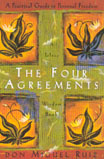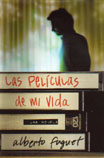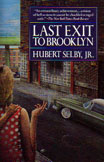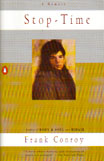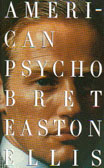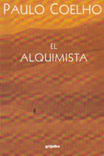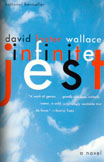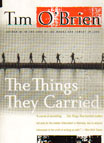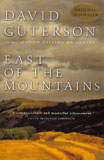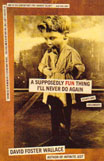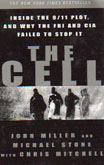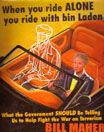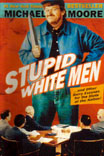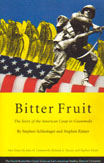| Home | Writings | Readings | About Me | Blog |
"If you want to be a good writer you have to do two things-read a lot and write a lot." - Stephen King |
These books are in the order in which I have read them, the most recently finished is at the top. I decided to start putting up books that I had read since I came home to Guatemala, and I've added some of my favorites that I read before then. Four peanuts is good and four empty peanuts is bad. Why peanuts? Visit the About Me page to find out. If you know of a really good book you'd like to recomment, let me know. Click on the covers to read more about the book at Amazon.com. Here is the key to understanding the background colors that indicate what kind of a book it is. |
-Just for fun |
|
-Politics and/or terrorism |
|
-Self Help |
|
-Scholarly or textbook-type |
Chicago: City on the make
by Nelson Algren |
This is a short book on Chicago. Or of Algren’s Chicago. I read Never Come Morning and liked it. Since I’m living in Chicago and this book is something of a poem about Chicago, I decided it was time to read it. Algren’s Chicago is a city of hustlers and squares, of corruption and back roads. He’s definitely anti-establishment and he feels this is one of the functions of writing. I liked the book because it has a lot of historical references and in this new edition they tell you the background to what he’s talking about. A lot of references I know of have come from Chicago and I didn’t even realize it. For example: “Slipping a mickey” comes from Chicago, a saloon keeper created a knockout drink that would render the clients unconscious, then he would rob them. The guy’s name was Mickey Finn. “Free lunch” started in Chicago as saloon keepers offered free lunches with the purchase of a beer. Some called it an immoral enticement, but for many it was the only meal they could get. Stuff like that. Algren loved Chicago and seemed to just want some semblance of equality. His optimism was fading fast and the picture he paints seems to me to be the beginning of the mess we find ourselves in today. Quote: "The Pottawattomies were much too square. They left nothing behind but their dirty river. While we shall leave, for remembrance, one rusty iron heart. The city's rusty heart, that holds the hustler and the square." |
|
Naufragio de las Palabras
de Edmundo Urrutia |
This one was recommended by Virginia all the way from Paris. She had mentioned the book before because she knows (or knew) the author and said it was a good point of view of the guerilla war in Guatemala City and all the elements surrounding it. Urrutia was part of the fight, or almost was. He tells the story of Abel, Rodrigo, Lucio, and Isabel and the different stages they find themselves in. In other words, how committed they are to the Revolution. He mixes in some of the actual philosophy of the movement, as well as some actual politicians and military personnel. The reason I found it so interesting is because this is a guy that was there, he was in it. It’s a first hand account of the communist ideal of bringing the country back to the people. It was a war and this is the first time I ever got a glimpse from someone on that side of it. The struggle between wanting to change something perceived as unfair and the overwhelming power that suppresses this struggle is the key element in the book. I really liked it. We're still feeling the effects of the themes he brings up. Quote: "En Guatemala pareciera que todos estan encerrados en el laberinto del desconocimiento de la historia, de ellos mismos, viviendo en la ignorancia de los que han sido y son." |
|
The Long Night of White Chickens
by Francisco Goldman |
This was one recommended by Tollo. If you are from Guatemala then you should read this book for the sheer pleasure of seeing so many guatemalan things personified in novel form. If you aren't, you should check it out not only for the good writing, but because it allows you to really see the country the way people who live there see it. Not all of them, obviously, but many people's perspectives come across in this book. It splits time between Namoset (outside of Boston) and Guatemala, which is where I've been the past 5-6 years, so there's a coincidence. Tollo didn't particularly like the ending, and to me it was really a non-factor. I didn't care how it ended, which is strange, because the novel itself entertained me so much. I used to wonder if Guatemala could be written about the way I had read about Paris (Hemingway, Matas, Rivera) and this book gave me the answer: oh yes. Favorite Line: "That's where you can see that Flor had an education," he said. "It was a fraudulent election even for Guatemala. Basest corruption, even for Guatemala. A repugnant murder, even for Guatemala. Just this one little word, vos, and we are weighed exactly." "...[Moya] said that Dracula was the best book on Guatemala ever written." |
|
The Writing Life
by Annie Dillard |
It's a short, quick read. I saw it at the bookstore and got curious and decided to see what it was like. It feels like I read it years ago for some reason, so I think whatever I say about it now will seem off the mark somehow. I did, however, fold a number of pages and underline quite a bit of it. Sometimes it gets a little too poetic, too "feminine" as some people (but not me - heaven forbid) might say. She works quite a bit with analogies: how to get honey by following a bee, the story of Rahm the airplane pilot, the guy who rows for hours on end against the tide until eventually the tide changes and brings him home, and so on. All are very well written and have something to say about writing. It's somewhat of a Hemingway-ish style I think - in the sense that she rarely blurts out what she wants to say, preferring these analogies instead. And I like that. Favorite Line: "Write as if you were dying. At the same time, assume you write for an audience consisting solely of terminal patients." |
|
| Nickel and Dimed by Barbara Ehrenreich |
This
could be a textbook type book like Fast Food Nation, but Ehrenreich
is a literary type who actually goes out and tries to live as a low-wage
worker. She wants to know how people with such meager wages make do.
What she finds out is that the solutions aren't pretty. The image I
was left with is based mostly on her thoughts towards the end, but it
makes you really angry to see how poor people that work really have
no shot at getting out of poverty. No wonder kids rather sell drugs
than bust their asses at Dennys. At times the book is funny, at times
it's sad, but the overall impression I was left with was one of slavery.
One group exploiting another and making sure that the status quo remains
- no matter how much it costs. This is capitalism in its coldest and
most real incarnation. Is that what this country is about? Is it a capitalistic
state before a democracy? How depressing. |
|
| Fast Food Nation by Eric Schlosser |
Want
to know what's in your happy meal? If you are addicted to McDonalds
I suggest you not read this book. It'll make it real tough on you. Basically
this book shows that there is a monopoly running the meat industry and
how capitalism is at its most efficient in the restaurant business:
keep salaries low, untrained, unskilled labor, high turnover rate, no
benefits, etc. It all equals to a big time profit at the expense of
everyone's health and well being. This book, along with the one above
it, are sad because they just confirm the fact that this country has
a dark side that many people don't know about and wouldn't believe if
they were told. It left me mad and saddened. I really liked the amount
of history he provides on the industry, it tells you how we got to where
we are today. Keep an eye out for Schlosser's "Reefer Madness"
coming soon. |
|
| Life of Pi by Yann Martel |
A wonderful book. A character in the book says the story will make you believe in the existence of God. That's a bit much, but I like the comment by a reviewer that says that it is "a story to make you believe in the soul-sustaining power of fiction." The whole time I was wondering if this was a real story or not, but towards the end it didn't even matter, really. It's about religion, survival, God, man, animal, and life. It was a bit slow at first, but it picks up quickly and never lets go. I read the last 200 pages in three days. A very easy read with very deep meaning. Favorite Line: "I know zoos are no longer in people's good graces. Religion faces the same problem. Certain illusions about freedom plague them both." |
|
I bought it along with Life of Pi, and it also is a easy read. It's also very entertaining. It tells the story of a 15-year-old autistic kid as he tries to solve the mystery of a dead dog. It's refreshing because he looks at the world in a totally different way. Things that we have come to accept as normal or logical do not make sense to him. It reminds me of something I thought of years ago (but never did anything about) about arriving at another planet and pointing out the other species's inconsistencies as only an outsider could. Then I saw that it had already been beat to death and I never gave it much thought. An easy read and well worth it, too.
|
||
| Paris no se acaba nunca by Enrique Vila-Matas |
Another book about being young in Paris while trying to make it as a writer. This author is now very famous and has had great success, so it's very refreshing to hear him talk about how miserable he was in Paris as he tried to fake his way into being a writer. He was basically pretending the whole time and he thought it was all a matter of time. It's basically the story of how he got through his first novel, a book that was supposed to kill whomever read it. He was an ambitious fellow. He was obsessed with Hemingway and he lets you know about it. Much of his time in Paris back then revolved around something Hemingway had said or written. It's kind of sad to be writing this now that I'm out of Paris. Like the title says, Paris never ends. A gem. Good Line: " Incluso el peor Hemingway nos recuerda que para comprometerse en la literatura uno tiene primero que comprometerse en la vida." |
|
Heart of Darkness by Joseph Conrad |
Apocalypse now was based on this book, although a lot of stuff is different. It's still a story about the unknown, the darkness, the wild, and so on. I enjoyed it but I think that the fact that I had already seen the movie kind of put those images into my mind as I read, kind of ruining the book, to some extent. I kept seeing Marlon Brando's face. In all, I think it ruined it because I can't seem to say much about the book. It's about 'progress', 'morals', and I would say about repression. That all of us, at our core, have a dark secret that is horrifying. Sorry, that's all I got for you. Good Lines: " I don't like work, - no man does - but I like what is in the work, - the chance to find yourself." "They were conquerors, and for that you want only brute force - nothing to boast of, when you have it, since your strength is just an accident arising from the weakness of others." |
|
Midair by Frank Conroy |
The book I traded for when I got rid of Ulysses. What a difference! The cover of the book describes something about Conroy that I felt since Stop Time but could never really put into words: "...Conroy's signature virtue, a reckless openness of heart." In other words, he oozes genuinness and honesty - so that plus him being a great writer. Well, you get the point. This is a collection of eight short stories. I've mentioned the link between DFW and Conroy before and I felt it again reading through Midair. Sabato's book said that fiction's purpose was to confront the spectrum of human emotions, good and bad. There are some ups, but most of the stories deal with the harder parts of like, things we don't like to talk about and evenutally repress. Conroy reminds us - with his frankness - that it's OK and we should take a closer look at them because they have something to tell us. Conroy is so good at giving you prose that you just breeze through as you totally get lost in his world, later realizing how exquisitely written it all is. Topics: fatherhood, basketball, love, writing, etc. Fast becoming my second favorite author. A Good Line: " What mattered was that everyone was connected in a web, that pain was part of that web, and yet despite it, people loved one another. That's what you found out when you got older, he said." |
|
El Escritor y sus Fantasmas by Ernesto Sabato |
Ok I got this on the recommendation of Luis Rivera, the author of Velador de Noche, Sonador de dia. I liked his book so much I went ahead and heeded his recommendation, which he felt very strongly about. It's basically just Sabato talking about the different problems he has come across as a writer. Problems that most writers will come across. A lot of the time I found myself relating to the things he was dicussing. Other times I felt I was learning from someone more experienced who has been through the trenches and all that. But most of the time I didn't know what the hell he was talking about. He talks a lot about Argentina and its social and creative issues, as well as different problems having to do with various literary movements or styles. These styles and things are something I not only disagree with (that we are in the era of this or that style), but I don't know what idealism is or socialist realism, etc. So some of the time I was a bit lost. He did spark an internal discussion in me about how the unconscious and the consious affects a creative mind differently. Those parts were probably my favorite, as well as his ideas as to why we write, with what purpose, for whom, etc. A Good Line: " ?Como vivir? De cualquier modo que la creacion no sea manoseada, bastardeada, abaratada: poniendo un tallercito mecanico, trabajando de empleado en un banco, vendiendo baratijas en la calle, asaltando un banco." |
|
The Great Gatsby by F. Scott Fitzgerald |
Mentioned and discussed in Hemingway's A Moveable Feast, I felt compelled to pick it up and keep the whole "classics" theme going. Hemingway said that this was a "fine" book. I enjoyed it. I think I would've liked it more if I had more of a background on the society of those times, but that's ok because I have a decent enough idea. The Great Gatsby, the Buchanans, tragedy, love, letting go, hanging on, persistence, jealousy, rage, revenge, a chance accident, being alone, being rich, not being rich. The book takes on a bit of an epic tragedy-type of feel. It's - like Hemingway - a lot deeper than what it seems like at first glance, and I'm starting to like that style. It's a classic. A Good Line: " Through all he said, even through his appalling sentimentality, I was reminded of a rhythm, a fragment of lost words, that I had heard somewhere a long time ago. For a moment a phrase tried to take shape in my mouth and my lips parted like a dumb man's, as though there was more struggling upon them than a wisp of startled air. But they made no sound, and what I had almost remembered was uncommunicable forever." |
|
White Noise by Don Delillo |
My second crack at Delillo goes a lot better than the first. This one is rated as one of his better ones along with Mao II and Americana. I see the resemblances with DFW. I guess you could say that DFW is a descendant of whatever line it is that they Delillo was a part of. The narrator is the head of Hitler studies at a college and he is obsessed with death. This is basically the theme of the book. How we deal with the fear and inevitability of death. The book is also very funny, blending in disasters and off-beat conversations between quirky characters. At times I thought to myself, "the narrator is every character" which is supposed to take away from the whole thing. But I think it just helped to take you away from what you are used to and lets you fully submerge yourself in the world he's created. There are a lot of symbols here (I think) and I'm still trying to work them all out. The supermarket is one, television has something to do with it, perhaps advertising in general? Either way this book is deep, it deals with questions I like to think about and it made me laugh throughout. Oh and death too, obviously. It seems Delillo has a fixation with it. Through the two books I've read anyway. A Good Line: " My shoulder separates. An old sexual injury." |
|
A Moveable Feast by Ernest Hemingway |
Well it must be something in the water because it's another book that mixes writing, Paris, and being young. I think I'm still pretty young, but after reading Hemingway and how he worked in his 20s, well, I feel a bit behind. Thanks for Andrew for being persistent and recommending more Hemingway after my initial distaste with him. It's just that I didn't understand or "get it." I "get it" a lot better now and I can see why he's such a great writer. I went to some of the places in the book and it makes you realize that the Paris he lived in is gone and what has replaced it is something else entirely. More like the end when the rich people take over. It's also interesting to see how much he drinks and how it seemed normal even though he would later become an alcoholic. The community he moves around in is very eclectic and he writes very honestly about it all. I really like how he repeats over and over how in love he is but that he's young and that'll take care of itself. Then the ending. I guess this is my "real" intro to Hemingway. It's about Hemingway's life, writing, and Paris, what else do you want? A Favorite Line: " ...I felt the death loneliness that comes at the end of every day that is wasted in your life." |
|
Velador de Noche, Sonador de dia by Luis Rivera |
This book also was thoroughly underlined. It had a good story behind it too in that I randomly met the author (who is Guatemalan) here in Paris and he gave the book. It deals with a 30-ish year old guy who's been in Paris for ten years trying to get by and write at the same time. Anything written that takes place in Paris is of interest to me and since the main guy is Guatemalan and talks likes it (plus he's a writer) this book seems to have been made for me. The other aspect of it that I enjoyed is that he talks a lot about writing within the context of the so-called "diary" or "notebook." The book was supposedly carved out of his "friend's" notebook and so the book was born. The honesty and sincerity behind the whole thing is an attempt to rise up above his mediocrity. If he admits it and revels in it, well that makes him someone doesn't it? A Favorite Line: "Al dia siguiente de cada uno de estos ultimatums a mi pereza, es seguro que mis firmes propositos de enmienda ya habran sido triturados por una misteriosa maquinaria cada vez mas perfeccionada." |
|
Lolita by Vladimir Nabokov |
OK so this was one of my attempts to dip into some classics. Also (I know it's embarassing) I read somewhere that Nabokov and DFW were grouped together and that's all I needed in the way of a recommendation. I thought the subject matter would carry this book. It does, in the refreshing point of view you get of it, but it's the writing that holds this book up. Nabokov has a great ability to get himself across. He takes us into the world of nymphettes and how once Humbert got a taste he was practically addicted. I can imagine the book creating quite a stir when it came out, and when you think about it it really is pretty "sick." I can't wait to see the Kubrick movie version, I think Nabokov and he would get along great. Anyway, I really enjoyed the read, it went by quickly, and I intend to read more of his work in the future. Reminded me a bit of Conroy's Stop Time. TONS of underlining. A Favorite Line: "Absolutely forbidden were dates, single or double or triple-the next step being of course mass orgy. " |
|
Cosmopolis by Don Delillo |
This was a semi-random purchase. I had heard of Delillo after doing some research into writers that were considered similar to DFW. Americana is his big work of art of whatever. But I saw this one and read the back, and it was calling to me. A man too rich to even live spends a day in his ultra-high-tech limosine as he plots his own self-destruction. I can see why they grouped Delillo and DFW in the same class. BUT this book seemed hollow to me. Some things were simply there for the sake of being there. Or maybe they had a deeper meaning I just didn't understand nor perceive. Anyway, it's a critique of society, of money, of capitalism, of reality really. Some parts are more interesting than others and overall I enjoyed the world that Delillo creates (or is it imitates?). A Line: "But it was the threat of death at the brink of night that spoke to him most surely about some principal of fate he'd always known would come clear in time. Now he could begin the business of living." |
|
On Writing by Stephen King |
This was a really quick read because I enjoyed it so much. It was also a complete change of pace - with regards the fiction I've been reading (see DFW). King is, in my opinion, the exact opposite of DFW on such things as detail, description, simplicity, and storytelling. King wants to tell stories while DFW is on a whole other complicated level. But I enjoy both of them very much. The first half of the book is a sort of autobiography that describes how King "came out" the way he did. The other half talks about writing in a frank and honest way. Right to the point. He offers his thoughts on the craft and says, "This is the way I see it." Since he doesn't seem to be forcing it on the reader it works. One can tell it's sound advice. At times I felt like I was looking down at him and thinking, "This is way to simple, I want to be do more than that." And I think that's part of what he's trying to address here: It's OK to write to tell a story. It sounds simple, but it is also "magical." A great writer's candid opinions on something he obviously knows about. Thank you for writing this, Stephen King. Favorite Line: "Life isn't a support-system for art. It's the other way around."" |
|
Oblivion by David Foster Wallace |
As I've said before, I was getting sick of not really liking what I was reading so I had to come back to Wallace and, after a slow start, he came through again. It's vintage Wallace this time around only that his overarching theme is one of dejection and submission to the cruel reality that we live in. At first I saw why some people don't like to read him - for the first time ever. He doesn't have many characters that one will get emotionally attached to. So if you're looking for a feel-good type read, look elsewhere. If you want to laugh and think about who we are as human beings, then Wallace is your guy. As for the continued criticism of him being "too smart" and his sentences "too long", I really don't complain since I know that my mind (as well as many others') sometimes functions in this thoroughly confused, long winded way, which is a testament to his ability to have been able to convey it in written form. DFW is still great. Favorite Line: "They were at a stage where they were now too adult and socially refined to respond with a drawn out semicruel 'Oooo-kaaaay,' but you could tell that a few of them were thinking it." |
|
So this was the fourth Coelho book I've read and it's the first time I'm disappointed. It seemed like he wanted to expand on Brida instead of write a new book on a new subject. He even throws her in the book for a second or two. It's too cliche and feels like he just scribbled it out without giving it much thought. It kind of bums me out because I like all the other books I've read and have his latest waiting at home, but this makes me not want to give him another try. The final twist near the end makes no sense and I re-read it to see if it was just me. It wasn't. This feels like a cheap imitation of a Coelho book and I really didn't enjoy it, I disliked it a lot. I'm even more frustrated because it seems I haven't liked any of the books I've read lately. Where is the love? I felt bad when: A couple times I was like, "Damn what a slut" with respects to the main character. |
||
El Aleph by Jorge Luis Borges |
I first had to read this book in high school for a literature class. For whatever reason, I decided to go back to it, since one of my favorite stories ever is in this book (El Inmortal). The first time I had read most of it and had been left with haunting images of labyrinths, legends, and tough words. This time it was more of the same, and I'm amazed I didn't pick up on how obsessed Borges was with infinity, labyrinths, and with eternal recurrence. It's all over the place. Is the book still worth it? I wouldn't recommend it, you can just read El Inmortal on the internet. The book is Borges showing off how much he knows and kind of weaving it all together along with the aforementioned obsessions. Some stories were OK, but I found myself relieved to finish it and move on to something else. Favorite Part: "En Roma, converse con filosofos que sintieron que dilatar la vida de los hombres era dilatar su agonia y multiplicar el numero de sus muertes." |
|
It was a quick read, it went down in two days, but it wasn’t at all what I expected. I had only read The Old Man and the Sea of Hemingway’s, and for whatever reason I think this was over-hyped. I just don’t see what all the fuss is about with him. Maybe I should read For Whom the Bell Tolls or something, I’m not sure. Anyway, on its own merits the book is a very well told story which unfortunately takes place mostly outside of Paris (I bought it because I was under the impression it was set in Paris, and with me being in Paris and all...). Not much else to say really, no big impressions or anything, though I may change that tomorrow once I’ve had a chance to sleep on it. Favorite Part: The way that Robert Cohen gets treated. It all seems like he somehow deserves it. |
||
There are physics
for the smallest things in the world and then there are the physics
for the biggest distances in the world, and they are different, incompatible
theories. String theory is supposed to one day merge the two and allow
us to explain the entire universe's physics with one theory. The first
half of the book is really interesting, dealing with things like black
holes, gravity, Eintein's theories, and so on. It's interesting because
it's "sci-fi" stuff only for real. Time travel becomes a theoretical
possibility, and who doesn't like time travel? It's a very interesting
read, but near the end of the book, when it starts to really get into
the actual string theory details, it got too dense for me, and I skimmed
over the last 80 pages. It's a science book, so don't expect a page
turner, but if you dig black holes and that kind of stuff, you may want
to give it a shot. |
||
This is a quick read I picked up in Boston so I wouldn't go ahead and buy the other 5 books I had under my arm. A compromise, if you will. It's basically two parts: one deals with the different perspectives that well-known authors have about the craft of writing, what they think is most important, difficult, etc. Part two deals with more specific topics like screen writing, agents, publishing, getting paid, etc. It's really a book about suggestions, unless you are really new to writing, about how certain authors deal with some of the issues that arise when you are writing. There are some interesting little quotes and stories from some prolific writers in here. Other than that, it's a lot of filler, but good filler. "I have had to ease off on making love when writing hard as the two things are run by the same motor." - Hemingway |
||
David
Foster Wallace does it again. Just as I had started to forget about
how great a writer he is and how entertaining he is to read - boom -
he hits me with this. A collection of short stories very different from
A Girl With Curious Hair. There are more stories
here, and they are shorter. There are some real classics in here: Octet
(my fav), Forever Overhead, The Depressed Person, Signifying Nothing,
and on and on. All the interviews are classic as well, and throughout
the book he manages to both relate to the reader as well as make you
uncomfortable and think about all these "hideous" men. Whether
you like fiction or not, you owe it to yourself to read this book. DFW
does it again. My favorite DFW book...ever.
quote: "...all distinguishing features of different people's surface personalities would be obliterated and everybody at the party would emerge as more or less exactly the same, and the party would reach this sort of entropic homeostasis of nakedly self-obsessed sameness, and it'd get incredibly boring." |
||
Caos
by Flavio Herrera
|
A small
book from a Guatemalan writer I just randomly picked up one day (like
I need more books to just randomly go out and buy). It's a short novel
of sorts that takes place on a farm. On the surface it deals with a
stranger who has these sort of spasmic attacks and drinks way too much
than anyone should - the kind of guy you see on the streets of small
pueblos down here (in Guatemala) on a sunday afternoon, passed out.
Only underneath the writer is talking about what we are deep down, innately.
The unchangeable us that has always been and will always be,
whether we like it or not. Which was a nice surprise because that's
exactly the whole purpose of me reading the genetics/evolution books,
to know more about whether this innate "us" actually exists
or not.
Fav Part: A 2-page chapter called "El Muro" (the wall) that is the best description I can recall of the racial/economic divide that -to this day- affects this country. |
|
My second entry into the world of evolution and genetics, The Red Queen focuses more on the role of sex in the evolution of human nature. There is tons of research but most of it deals with animals. As Ridley points out, you can't just study human nature in isolation, you need reference points, hence all the information on animals and their behaviors (which is interesting, just not my cup of tea). The second half of the book is more what I enjoyed, it focuses more on why men and women behave certain ways and the genetic background to it. Some of it may cause a stir in feminist circles, but evolution wasn't meant to be politically correct. Among the most interesting topics are beauty, intelligence, the discussion of the traditional roles for men and women, and sex. Favorite Part: A lot of this information can actually by useful insofar as how you live your life. |
||
|
by Richard Clarke
|
The
highly controversial book by Richard Clarke is NOT what most people
think it is. It is NOT a Bush bashing book, this is a book about terrorism,
the history of terrorism, and the people in charge of combating terrorism
before and after 9-11. Take away all the hoopla surrounding it and it's
a great read if you want to know what was going on in the administrations
of the first Bush, Clinton, and the current Bush. Yes, it harshly criticizes
Bush Jr's administration in the last chapter, and after reading through
the book you'll understand why Clarke was so frustrated. It shows how
sloppy the mission to Afghanistan was and it confirms what Paul O'Neil
has been saying about the administration's focus being on Iraq, not
al-Qaeda. Like the subtitle says, "Inside America's War on Terror",
that's exactly what this book is about, and Clarke does a fantastic
job of telling us about it. If you want to know the history of the relationship
between the US government and terror, then this is the book to read.
|
|
Fahrenheit 451 by Ray Bradbury
|
This is a great little book about a future where people have decided that books only get in the way of happiness and so they eventually become illegal. The firemen are in charge of burning the books while the general population lives in a world of wall-sized television screens and work. It's the perfect example of what Pascal was talking about when he said that, if we have too much idle time on our hands, we will realize how wretched we really are. It really made me re-evaluate by philosophy on happiness and how important it is. It is often compared to another personal favorite of mine, 1984, and yes they are similar but Fahrenheit 451 is less political in that sense. Favorite Part: "He wore his happiness like a mask and the girl had run off across the lawn with the mask and there was no way of going to knock on her door and ask for it back." Pp. 12. |
|
This book is meant to awaken the writer in you and I guess it really tries it's hardest. It was first assigned to me in a freshman writing class and I hated it and never read it until now. I did notice that a lot of the stuff it suggests I've developed myself, over time, simply by writing. There is a lot of good advice here, and I can see why it was given to us during freshman year, it's for novice writers or people who are just starting out. The author is a poet, and a lot of her ideas reflect that. Still, it is a quick read with very short chapters, some of which are pretty useful. Favorite thing: Her stress on practicing to get better. |
||
Catch-22 by Joseph Heller |
One of the funniest books I have ever read. Wacky characters, nonsensical to the point of hilarity type humor, and a world of war and death that shocks you and makes you laugh at the same time. Rarely does a book say so much about religion, death, life, war, and survival so deeply and manages to be funny about it. (this really doesn't do the book justice, and Stephen King would scold the review but please just take my word for it read this) Favorite thing: The "Ooooohhhh" sequence on page 231. I repeat, this book is hilarious! |
|
|
by Ron Suskind
|
Paul O'Neil used to work for the George Jr's White House but he was forced to resign after his tell-it-like-it-is personality clashed with the administration. The reason they hired him was to give the administration credibility with non-Republicans, and for a while it worked. Everyone should read this book, it shows how someone so capable, so smart, and with so many positive ideas is helpless to the power of the few people who advise the president on all matters. Really revealing on many issues such as the economy, how Iraq was a priority before 9-11, and so on. Favorite Part: When O'Neil discusses his opinion on CEO responsibility and how, if they didn't do anything wrong, they have nothing to worry about (sounds obvious, no?). |
|
Creative Mind by Ernest Holmes
|
A little book I picked up after reading an article about how it helped Barry Zito regain his consistency on the baseball field. It's filled with great ideas and new ways of looking at things. The main idea is that we all come from the same place and we all draw our creative energies from the same place. We are all God and God is all of us, and through our word we create and mold the world around us. We, as individuals, have the power to make our lives what we want them to be. The only problem with the book is that it's all based on the belief in God, which is why it lost a peanut, but it still has useful information in it. Favorite Part: How it stresses individuality and not depending on others to get what we want. |
|
El Peregrino by Paulo Coelho
|
This book is really about finding your calling in life and how difficult it is to find and how rewarding it is once you achieve it. It's vintage Coelho, although this seems to be the slowest of the three books I've read so far. It details a journey from Pied-de-Port in France to Santiago de Compostela in Spain, as the narrator learns the ways of RAM and tries to find his sword. As with the other Coelho books, his storytelling is filled with philosophy about life, death, self-discovery, and about being honest with who we are. It's a good book, but I guess I was spoiled after Alquimista and Brida. This book actually came out before Alquimista. Favorite Part: How death is portrayed as our friend, since without it we wouldn't value what little time we have. |
|
|
by Nelson Algren
|
This book reminded me quite a bit of Last Exit to Brooklyn in that it deals with characters that live in shit and have no hope of getting out of it. This is what Algren apparently loved to write about: the dispossessed and poor people of the world. Lefty Biceps is the main character, and he goes through hell every day with the hopes that one day he will bust out of it because of his ability to box. I like boxing and the struggle to survive kind of creates a good parallel. At times the book gets pretty slow and not a lot happens, but that's pretty much the lives of the characters in the book go. Also includes an interesting interview with Algren where he talks about what it is to be a writer. Favorite Part: "Well, that was a cop for you, changeable as a woman." pp. 106. |
|
On Human Nature by Edward Wilson
|
Marks my entry into the world of genetics and evolution. Wilson stresses how we are a result of genetics and culture. This book deals with the dilemma of what our human nature is if we don't, as humans, have an ultimate purpose. According to Wilson, one day we will understand genetics to the point of being able to choose how we want ourselves to be (honest, handsome, strong, etc.) and this will create a whole re-evaluation of our values, insofar as what is "good" and what is "bad." Chapter titles include religion, sex, and aggression, all from a logical, scientific point of view. Favorite Part: "if our genes are inherited and our environment is a train of physical events set in motion before we were born, how can there be a truly independent agent within the brain? It would appear that our freedom is only a self-delusion." |
|
El Túnel by Ernesto Sabato
|
This short little book starts out with the narrator telling us who he is and that he killed a woman. The rest of the book is him going back and telling us how they met and all the circumstances that led to the murder. It's really an entertaining read because the guy is a head case, just like many of us are, and we get to see exactly how he thinks and reacts, mentally, to everything that happens to him. Sometimes I found myself identifying with him, which was kind of creepy. In all, it reminds me a lot of Camus' The Stranger, in that both main characters are "out of the loop" with respects to society. Favorite Part: "Mi cabeza es un laberinto oscuro. A veces hay como relámpagos que iluminan algunos corredores." Pp. 40. |
|
The DaVinci Code by Dan Brown
|
The much talked about and highly
"controversial" book by previously little-known Dan Brown
deals with the church, Mary Magdalene, and a story that has remained
hidden from people for two centuries. It all starts at the Louvre, in
present day France, and goes from there. I haven't read a whole of this
"mystery-thriller" genre, so I don't know how to compare,
but I will say that this book is a page turner. It's very simple writing,
nothing special in that regard, but the story is gripping and makes
you want to finish it as soon as possible. It's also very well researched,
to the point where you reach the end and marvel at how the author put
it all together. All controversy aside (which is where it should remain),
this is a highly entertaining book. |
|
Who Killed Daniel Pearl? by Bernard-Henri Lévy
|
As you would expect with a book titled in the form of a question, the book ends without ever answering it. The author traces Pearl's steps in Pakistan trying to get information as to who were the masterminds behind his killing. The big problem with this book is that Lévy assumes too much and lets his mind wander, creating all kinds of fantastic probabilities, which are just that, probabilities. Many of his ideas are just too much conjecture to really take seriously. In the end he presents many possibilities but never backs up any of them with enough data to say "OK this one is probably more likely that this one." And it would be good, because some of the possibilities have far-reaching consequences. Favorite Part: Provides a scary window into what the Pakistani Secret Service is like. |
|
Waiting Period by Hubert Selby Jr.
|
This book is about a guy who is sick of life and wants to commit suicide to put an end to the shitty existence he is living. But as he goes to buy the gun to kill himself, a glitch forces him to wait a few days, during which he realizes that he isn't the one that should die, it's the people that make this world so shitty who should be killed, and he's the one to do it. He becomes a meticulous investigator/researcher/ murderer, and it all brings meaning to his life. He finds his calling. There is a lot of philosophy in this book as the character grapples with himself and looks at the world through eyes that see things how there are, for what they are. Favorite Part: "The only reason I would want to avoid hell, if it exists, is that it is filled with (...) the devout, the fundamentalist, the Barnards." Pp. 126. |
|
|
by Paulo Coelho
|
Paulo Coelho books seem to have one underlying theme that he wants to get across more than others amidst all his spiritual philosophizing, and Brida is about love. It tells the story of a young woman who wants to become a witch, and on the way she finds out what the real meaning of love is: one spirit separated at some point in time only to be reunited in this or one of the many lives ahead of us. Love will not be denied. There are too many useful things in this book to mention or list, but if you liked Alquimista (who doesn't?), then you will really enjoy Brida. Coelho books could actually be classified as self-help. Favorite Part: "'Tengo miedo de comprometerme', pensó. Quería recorrer todos los caminos posibles, e iba a acabar no recorriendo ninguno." Pp. 100. |
|
|
by David Foster Wallace
|
A collection of 10 short stories by David Foster Wallace where he shows off his range and his ability to use words like chess pieces. This guy is really something. He moves from Punks to Jeopardy to Lyndon Johnson to McDonalds and so on. It's really hard to describe, but you'll have an awesome time reading it. He changes styles from one story to the next but maintains, behind it all, his ability to weave images and characters that you will not soon forget. One word: damn intelligent. The title story reminded me a lot of American Psycho. Favorite Parts: "Popular culture is the symbolic representation of what people already believe." Pp.271. A response to what you fear most in this world: "That I die and get to heaven and I get there and it stops being heaven because I'm there. |
|
Doubt: A History by Jennifer Hecht
|
This book practically spans the whole history of when people starting saying "wait a minute, I'm not sure about that." It's filled with excellent historical references and a whole bunch of historical figures I knew nothing about. The book is long, and at times slow, but there is so much information in there that you will be thankful you read through the whole thing. This is really a valuable book for those that like to get into debates with people who believe, since it rebukes many of their arguments with historical data. Favorite Part: Realizing that there have been people doubting the establishment pretty much since the establishment began to exist. |
|
The Four Agreements by Miguel Ruiz
|
A little book that was given to me by my friend Jeanne for my birthday and it's really very enlightening. It's based on Toltec Wisdom, which really doesn't mean anything to me but the book is still filled with very useful ideas and thoughts regarding how we can improve our day to day lives. It's basically a discussion on how these four "agreements" can help you live a happier life:
Favorite Part: The fact that the purpose of the whole book is to eliminate any unnecessary drama from your life, because unnecessary drama in really very unnecessary. |
|
Las Peliculas de mi Vida by Alberto Fuguet
|
I decided to buy this book after I read a little bit about Fuguet and his whole "anti-magical-realism" movement. It seemed pretty revolutionary and forward-looking for Latin America and I became intrigued. It's a pretty good concept, he remembers 50 of his favorite movies and recounts what was happening in his life around that time and how the movie affected him. It all takes place from about the mid-60s to the late 70s in Chile and in California. It winds up turning into a fictional biography of the narrator which, although interesting at times, doesn't really leave with anything deep or rewarding at the end. Favorite Part: "Durante Amor en Juego me di cuenta de que las peliculas que de verdad te llegan siempre son acerca de uno." Pp. 252. |
|
|
by Hubert Selby Jr.
|
I don't know how fairly I can review this book since my favorite movie of all time is Requiem for a Dream, which was also written by Selby. Also, this book was hyped up quite a bit by my friend Andrew Nelson and so I was expecting a lot from it (he is the one who hyped up Requiem, which he was right on target about). Anyway, it's basically about the absolute shit that people have to live in every day of their lives and how there is no escape from it. I was expecting to be shocked a lot more than I was, then again after Requiem everything just kind of fades away. One chapter though, Tralala, really did have an impact on me. Again, I can't fairly review the book, but I did enjoy it quite a bit. Awfully reminiscent of Never Come Morning. Favorite Part: "Her life didn't revolve, but spun centrifugally, around stimulants, opiates, johns ...the freakish precipitate coming to the top." Pp. 24. |
|
|
by Frank Conroy
|
A truly wonderfully magnificent book. Frank Conroy's memoirs deal with going from boy to adolescent and everything that comes with it. I heard about this book while reading something about David Foster Wallace (Infinite Jest, the Essay book, short story book, etc.), and he mentioned that this book is what made him want to become a writer, so I had to get it. It didn't remind me of Wallace's style at all, but this was probably one of the most enjoyable reads I've ever had. The detail-rich environment that Conroy creates and the words he chooses just blend in a way that takes you to all his experiences and allows you to feel them instead of just read about them. Favorite Part: "'I'm a novelist,' he said, and I remember putting the book down and thinking, my God what a beautiful thing to be able to say." Pp. 230. |
|
|
by Easton Ellis
|
Unfortunately for me, I saw the movie first, but it was a long time since I had when I read the book, so I wasn't putting the movie images in my head as I read. I bought it on recommendation from Tollo, and it's a damn fine recommendation. The book revolves around Patrick Bateman and the elite lifestyle him and his "friends" revel in. The way this book and its chapters are written had a great influence on me and on some of the writings on this website (Schlotzsky's and Pupusas). Basically this is about a man who gives us his most intimate thoughts and struggles to grapple with who he is and why he enjoys doing certain things to people and animals. Dark, honest, disgusting, and funny all in one. One of my favorites and definitely better than the movie, which was pretty good. A Favorite Part: "I'm loosening the tie I'm still wearing with a blood soaked hand, breathing in deeply. This is my reality. Everything outside of this is like some movie I once saw." Pp. 345. |
|
|
by Paulo Coelho
|
Thanks to Jeanne for this one, I had heard of the famous Paulo Coelho but never read any of his books. This is his most famous and, in my opinion, his best. On the surface it's about a boy searching for his destiny. But, as with all Coelho books, it comes down to philosophy about life and growth. He introduces phrases such as Leyenda Personal and Lenguaje del Mundo to show how the main character, Santiago, is maturing and striving to reach his goals. I read it in about two days because I just couldn't stop. Once you finish it, you'll feel as satisfied and wise as Santiago does once it's all said and done. Favorite Part: The fact that it's simple writing and yet it has so much power and emotional weight. |
|
Lies and the Lying Liars who tell them by Al Franken
|
The comedian from Harvard takes on the Bush administration and the Republican party and tries to be funny about it. He tries to focus on specific instances of times people have lied about topics such as WMDs, the tax cuts, the environment, and Bill O'Reilly, who absolutely hates Franken. While the title is a parody of Fox News' slogan of supposedly being fair and balanced, the book doesn't really feel all that balanced. By omitting some of the negative things in the Democratic party, Franken comes off as one-sided, and his brand of comedy doesn't really do anything for me when mixed in with politics. In the end, it isn't really funny and isn't very balanced. Favorite Part: How angry O'Reilly got at his splotchy picture on the cover of this book.
|
|
|
by David Foster Wallace |
After I read his essay book, I noticed he was famous for this novel, so I had to get it. Let's get one thing straight about this book: yes, it is a mammoth, clocking in at just over 1000 pages. Yes, it will take you a while to read it. Yes, sometimes you won't feel very smart as you read it. Wallace shows off his wit and vocabulary in a very sophisticated way that somehow manages to stay free of cockiness or arrogance. That's pretty much all you need to know - oh wait and go buy this book, it's worth it and then some. I feel like too small of a person to aptly describe this book to you, but if you like reading then this will dazzle you. You may have some trouble with the temporal aspects of the book, but once you figure out how it works (he tell you at one point), then it all comes together. Please go read this book. Fun Fact: Almost 100 pages of footnotes. |
|
Crime Classics by Burns and Sullivan
|
A great collection of classic mystery stories from Poe to Hammet to Agatha Christie to Faulkner to Borges. It felt like a blast from the past to read so many classic, quality short stories from such celebrated writers. It really shows the meat of the genre and it's different variations, always with the witty main character at its center. If you're really into these type of stories then you'll also get a kick out of the suggested readings at the back of the book to keep you busy. Also, before each short story is a brief biography of its author, which helps put things into context. Favorite Part: How reason and logic seem find a solution to all of the problems and mysteries in a seemingly simple fashion, yet complicated enough that I would've never come up with. |
|
The things they carried by Tim O'Brien
|
This book was assigned to me in college and I only read one of two of the stories, without much interest (since I had to read them). But now I read through the whole thing and the stories are really quite good. They deal with stories about soldiers in Vietnam during the war, and Tim O'Brien was there. This book is also sometimes used to teach writing, which I really didn't understand until recently. There are certain things that O'Brien mentions among the stories that relate especially to writing. He discusses exaggeration, and how sometimes you have to do it in order to get across the feelings that are real to the reader. It isn't dishonest, he says, it's necessary, especially in war stories like these. Fun Fact: Sweetheart of the Song Tra Bong was made into a movie that came out a while ago. It was pretty good. |
|
Moneyball by Michael Lewis
|
The much talked about and highly controversial book about how the Oakland Athletics run their baseball team caused quite a bit of a stir in baseball circles and started arguments that are still raging today. Besides being very entertaining with regards to how an underdog has success, it provides unparalleled access to how this particular GM (Billy Beane) goes about his business. If you are a baseball fan, this book is a must. Favorite Part: "In Billy Beane's mind...[pitchers] were more like writers... To place a premium on velocity for its own sake was like placing a premium on a big vocabulary for its own sake...To say all pitchers should pitch like Nolan Ryan was as absurd as insisting that all writers should write like John Updike. Good pitchers were pitchers who got outs; how they did it was besides the point.." Pp. 222. |
|
East of the Mountains by David Guterson
|
I never read his most famous book, Snow Falling on Cedars, but this one is pretty good. The first time I started it I got bored and put it off for a few years. But it's actually quite good. It's a novel about an aging doctor who finds out he has cancer and hides it from everyone, decided instead to take his own life before the misery of cancer treatment does. He wants to live out his last days with dignity and so he decides to go hunting with his dogs one last time. Hilarity ensues. No, just kidding, but a bunch of things happen and we are right there to see how an old man who knows he will die and wants to die reacts. Favorite Part: "...they had kissed with the sadness of newlyweds who know that their kisses are too poignantly tender and that their good fortune is subject, like all things, to the crush of time, which remorselessly obliterates what is most desired and pervades all that is beautiful." Pp. 41. (damn!) |
|
A Supposedly fun thing I'll never do again by David Foster Wallace
|
The book that started my obsession with David Foster Wallace. My sister gave it to me for my birthday and, other than a trippy cover, I thought was probably going to be pretty lame. Seven essays, each one worth their weight in gold. The thing about them that I like so much, besides the genius and intellect behind them, is the fact that there is so much range here. He has a talent to make whatever he writes about interesting, and makes you want to know more. It's all very remarkable. The title essay (which is the last one) made me want to jump on a cruise ship and live out what was essentially a pretty depressing experience by the author (also where he mentions Stop Time). This book is a must have for anyone, but especially if you like essays. It proved to me that you can write an essay on anything. Favorite Part: That he can make me laugh and think so much at the same time is really very incredible. Favorite Essay: the last one, which shares the book's title. |
|
|
by Miller and Stone
|
This book examines what happened inside the FBI and CIA, as well as the US government, prior to 9-11. There is a lot of information in this book, and it really helps set the tone for what ended up happening on September 11th. The scary thing, and it really is scary, is how many mistakes the terrorists made and how many times they should have been caught. There is a lesson to be learned, and it is that the CIA and FBI both need major overhauls with respect to their bureaucratic way of going about things as well as their intelligence gathering and sharing. Quote: "...mounting government regulation and an internal culture of careerism and risk-aversion had shackled a field officer's [CIA] ability to develop agents..." Pp. 126. |
|
When you ride alone you ride with Bin Laden by Bill Maher
|
I've been a big fan of Bill Maher's ever since his days of Politically Incorrect, and I still am, although I don't have HBO and can't watch his new show very frequently. If you watched his show before, there probably isn't anything new for you in this book, but that's OK because the posters (like the cover) are well done and convey a message of their own. This is a reaction to the government's reaction to 9-11. He criticizes the administration for not asking enough (or anything at all) from Americans to help in the fight against terror. Maher's humor is right up my alley, as he is being funny in a way that makes you look back after you're done laughing and say, "Jeez, that's true." A lot of his points are just to reasonable and logical for the average American, unfortunately. A Quote : "The concept I'm talking about is sacrifice. Some people do it for their families, some people do it to get rock-hard abs, but not many of us seem willing to do it for America." Pp.3. |
|
Stupid White Men by Michael Moore
|
A real eye opener for me. Michael
Moore's best-selling book is angry and he wants you to know why. He
is sick over the fact that the presidency was stolen after Gore won
the vote, he's mad at the way blacks are perceived in the media, the
environment, and so on. This book is packed with a lot of information
and a lot of criticism with Bush's administration, and rightly so. The
thing that separates this book from most political books is that it
isn't bias. He also attacks the Democrats for not doing anything about
anything and letting Bush get away with whatever he wants to. Not only
that, but he provides a solution to the problems he encounters. Instead
of just saying "you suck because you are a Republican or a Democrat,"
he says, "you suck and here's what we, as a people, can do about
it." You can tell that Moore really cares and wants this to truly
be the best country in the World. Also highly recommended is his Oscar
winning documentary, Bowling for Columbine. |
|
Bitter Fruit by Schlesinger and Kinzer
|
This is a great historical review of what was going on in Guatemala during the 1950s. It's told in a sort of mixed story/history hybrid that makes this already interesting story quite riveting. It shows how the government of the United States, via the CIA, finally managed to get rid of democratically elected president Jacobo Arbenz. It's really amazing to see the lengths that the US administration went to in order to protect business interests in Guatemala and used communism as an excuse in order to get support from the American people, in case the secret got out. What's even more amazing is reading this under the current world climate and hearing America's leaders go on and on about how great and noble this country has always been and for the rest of the world to just "take their word" that they are doing everything for the betterment of everyone. Quote: "Most reporters, whether in Guatemala, Honduras, or Boston, had no idea of what was really going on." Pp. 187. |


